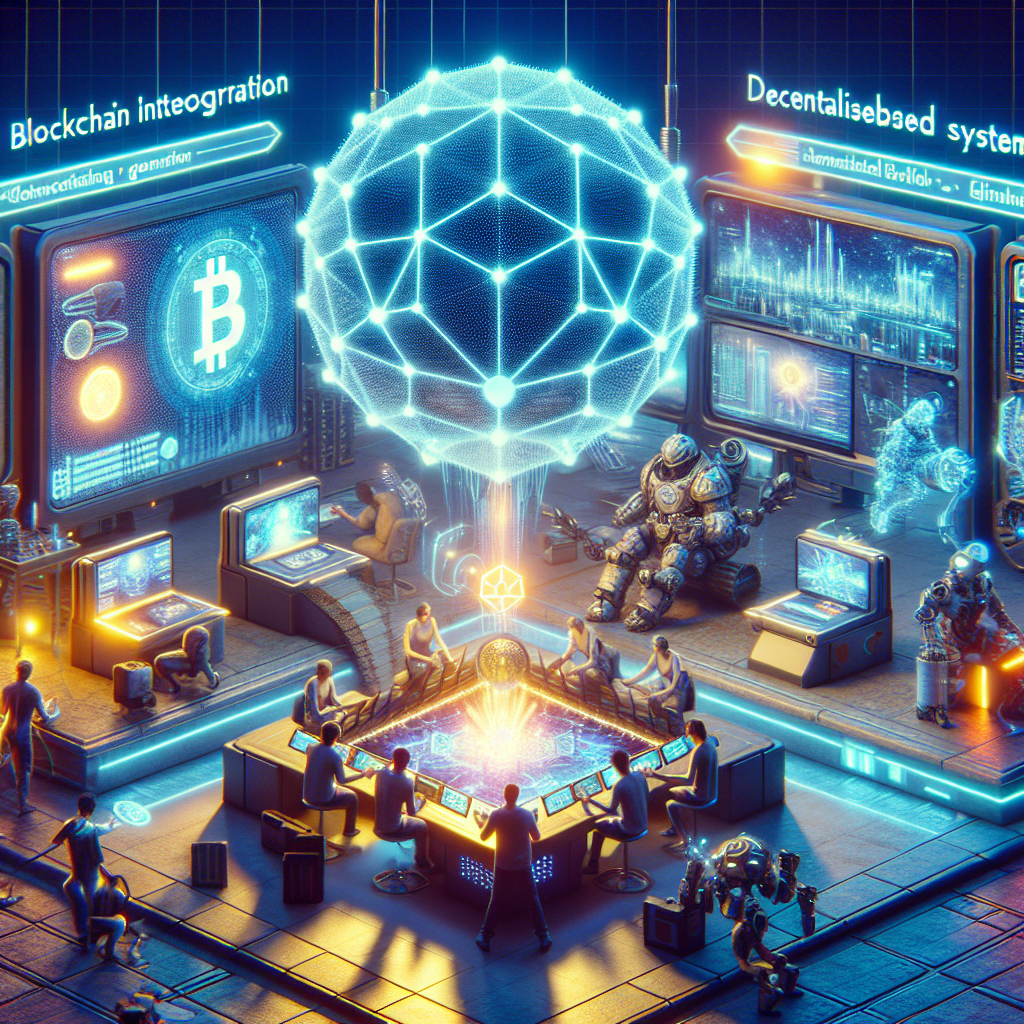
Exploring Blockchain's Potential in Revolutionising Gaming

Blockchain technology is revolutionising gaming by offering decentralisation, true item ownership, and play-to-earn models.
Blockchain technology is reshaping multiple industries, and gaming is no exception. With its unique capability to offer decentralisation, transparency, and security, blockchain is poised to revolutionise how games are developed, played, and monetised. One significant breakthrough is enabling true ownership of virtual assets. Gamers can securely own, trade, and transfer in-game items using NFTs or non-fungible tokens, which prevent duplication and ensure privacy. This concept vastly contrasts with traditional systems where items are under centralised control, often lost if game servers shut down.
Another remarkable innovation is the use of blockchain to facilitate decentralised gameplay. Blockchain networks can reduce reliance on centralised servers, creating tamper-proof records of player activities, achievements, and game progress. This ensures a fairer gaming environment, free from manipulation or cheating, and unlocks the potential for games that evolve or adapt algorithmically, influenced by an unbiased record of all players’ activity.
Blockchain could transform game development funding through token-based economies. Developers can issue tokens that represent shares or stakes in their games, allowing players and supporters to invest directly. This model gives studios the ability to raise capital while aligning player incentives, where the token's value could grow based on the game's success. Moreover, players could reap rewards for their loyalty or the time they spend contributing to a game’s ecosystem.
Smart contracts, another revolutionary blockchain tool, promise to facilitate automatic transactions and enforceable agreements in gaming. These contracts can control rewards distribution, in-game trades, or tournament winnings with minimal reliance on middlemen. The security ensures that these processes are transparent and tamper-proof, avoiding any form of exploitation.
Moreover, integrating blockchain into gaming builds value through interoperability. Players could move assets effortlessly from one game to another. Imagine a sword earned in one game being usable in another, thus creating a seamless transition between diverse gaming worlds. This could fundamentally reshape the idea of virtual assets by breaking down the walls between games from different developers.
Blockchain also has the potential to inspire decentralised eSports tournaments. By using smart contracts, entry fees, prize pools, and results could be managed transparently. Additionally, token-based platforms could allow gamblers to bet safely on matches without relying on dubious or exploitative systems. Blockchain’s emphasis on fairness and transparency creates a level playing field for competitors and fans alike.
The play-to-earn model is set to underpin blockchain-supported games where players can earn in-game assets with real-world value. These games offer unique opportunities for individuals in regions where earning money physically might be challenging. By allowing in-game efforts to have tangible economic benefits, blockchain gaming can merge leisure with a source of income.
Finally, blockchain’s ability to stamp out piracy could redefine intellectual property protection in the gaming industry. By creating a decentralised ledger of ownership for digital products, blockchain helps prevent unauthorised replication or distribution of games, thereby offering developers better control over revenue streams.
In summary, blockchain's influence holds exciting potential for every facet of gaming, from development and ownership to play and monetisation. By addressing long-standing issues such as transparency, fairness, and interoperability, it creates opportunities to make gaming more inclusive, secure, and rewarding for developers and players alike.